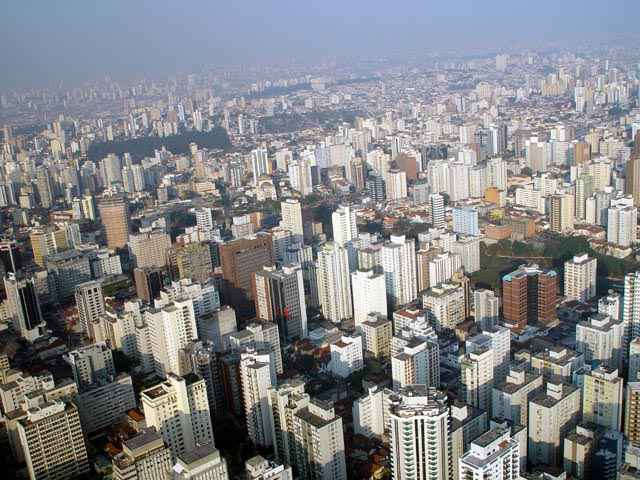Ecobairro São Paulo

The Ecobairro (Econeighborhood) in São Paulo (Brazil) is an initiative in the neighborhood of Vila Mariana. There is a strong commitment with 2030 Agenda from 2015 and the SDGs. The aim of the project is the transition to a local, circular and participatory governance in which community members are encouraged to act responsibly.

Type: Neighborhood
Population: 344.632
Extension: 26,5 km²
Density: 13.000 inhabitants per km²
Key Aspects
The EcoBairro Permanent Program is an initiative born from the Instituto Roerich da Paz e Cultura do Brasil (SSA) together with the Associação Urusvati Mantenedora – Casa Urusvati (SP), and that received support from the United Nations (2005).
With the focus on sustainability that penetrates the everyday life, Ecobairro adopts the proposed 8 nuclei of sustainability for city of the future: Education, Economy, Spirituality, Health, Communication, Politics, Culture and Ecology.
The DNA of Ecobairro proposes balanced systemic actions in all the areas such that sustainability emerges as a result of those actions.
Context
Ecobairro proposes to support residents of the neighborhood to adopt sustainability practices inside and outside their houses, using the following methodologies:
- Identify different social actors in the neighborhood, stimulating their cooperation and sustainable practice;
- Identify, together with the community, measures to help foster sustainability practices, managing their implementation;
- Establish partnerships;
- Make the experiences public, to foster inspiration for other potential experiences;
Challenges
- Time and collective agendas
- Public Power Engagement
- Include Business and companies as well as Universities
The aim for the future is to replicate the experiment in 32 municipalities
Pilot activities so far...
Release, Talk Wheel Invitation, Photos, Presentation on 23/04, Attendance Lists, Conversation Circle Feedback, Participation in 4th Nacional Meeting of transition in Rio de janeiro
Online baseline training webinar
Workshop on “decision making process’ and Sociocracy” already done (23/04/2018).
Next: Mapping group’s habilities, Decision making methods, Open forum on decision making.
Training in sociocracy with the whole “onion”, including the municipality.
Basic elements harvesting, Construction of the Baseline and GRID, Consolidation.
Completion of the baseline together with the members of the municipality
- Listing and selection of actions to be considered.
- Identification and listing of initiatives / actions committed to sustainability in the region of Vila Mariana Regional – Sustainability Working Group (new)
- Creation of questionnaire to map sustainability initiatives (https://goo.gl/forms/Di8lszNArAUHRIvq1) – Sustainability Action Working Group
- Lecture at the University of São Paulo – USP on MiT
- Brief explanation of MiT in Gaia Education’s “Glocalizers Webinar Series”
- Publicity posters for the local community and for the region of Vila Mariana Regional Government
- Blog
- https://www.youtube.com/watch?v=_wYDAwQUoNw&feature=youtu.be
- Disseminate the MIT practice more deeply within UMAPAZ (Open University of the Environment and Culture of Peace)
- Introduce MIT to the Mayor of São Paulo and to the secretariat of International Relations.
- Interview: https://www.facebook.com/prefeituravilamariana/posts/1874140602715225
- Pilot Tree Plantation Project – PPAC
- Sustainability Working Group (mapping initiatives committed to sustainability in the territory)
Address
(...)Contact
Tutor:
Ana Huertas (MiT Project Core Team)
Pilot’s Core Team:
Magda Beretta
Isabela Maria Gomez de Menezes (Transition Brazil)
Elisa Rocha
Maria Helena Solzi Godoy
Monica Picavea
Sergio Shigeeda
Victor Leon Ades